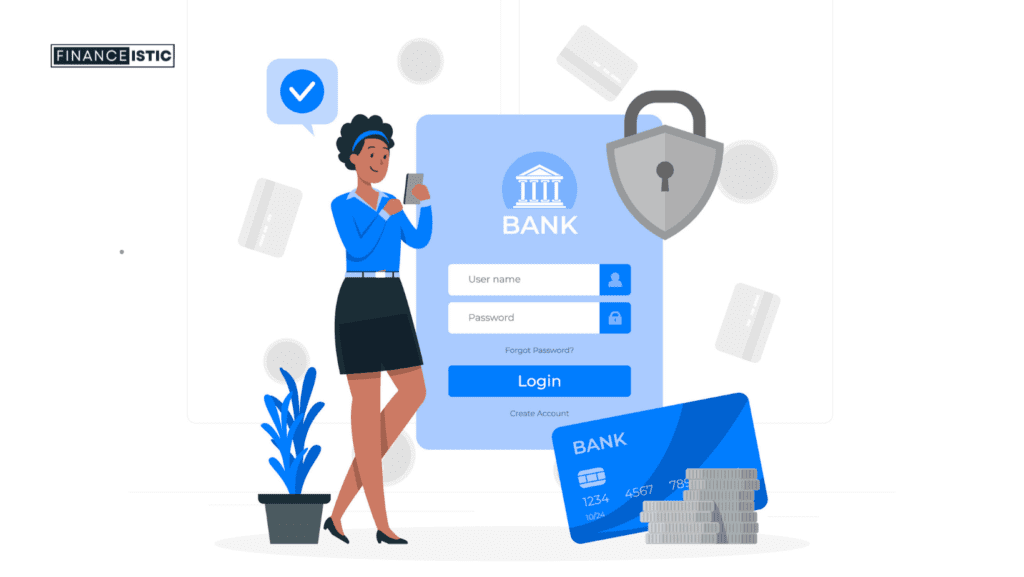Freezing a bank account involves suspending all transactions until further notice. This measure affects even pre-written checks that will no longer be honored. Various authorities, such as regulatory bodies (e.g., Reserve Bank of India) and legal entities (e.g., courts), have the power to initiate a freeze. Banks may also freeze accounts based on RBI guidelines on freezing of bank accounts, regardless of the account holder’s wishes. In such cases, an intervention by the Reserve Bank of India or other designated authorities can result in a temporary suspension of your account.

Table of Contents
What are frozen Bank Accounts?
When your account is frozen, it usually means your bank has detected a problem or a court order has ordered payment for an unpaid debt. During the freeze, you can’t transfer or withdraw money. However, deposits, such as paychecks, will still be accepted. It’s important to note that pre-authorized payments, like rent or loan payments, may not be processed as planned. If you discover your account is frozen, check the RBI guidelines on freezing of bank accounts to ensure the freeze aligns with their regulations.
RBI Guidelines on Freezing of Bank Accounts
1. Initial Notice and Reminder
Banks issue an initial 3 month notice to customers who have not followed Know Your Customer (KYC) rules. After that, they send a reminder and give them an additional 3 month to comply with KYC requirements.
2. Partial Freezing Implementation
Once the grace period ends, banks can take partial action by “freezing” accounts. During this time, account holders can only deposit funds (credits), and withdrawals (debits) are restricted. Additionally, the bank has the option to permanently close the accounts.
3. Extended Non-Compliance Measures
After 6 months of partial account restrictions (“freezing”), the accounts that do not meet KYC (Know Your Customer) regulations will be further restricted by banks. All transactions, including both deposits (credits) and withdrawals (debits), will be prohibited. As a result, the accounts will become unusable, potentially leading to their eventual closure.
4. Closure Procedures
Banks have the authority to terminate accounts that fail to meet regulations or standards. Before taking action, the bank must provide the customer with written notification. The decision to close an account should be made by a sufficiently senior-ranking official within the bank.
5. Identity Verification Concerns
Banks are obligated to report suspected fraudulent activities to the Financial Intelligence Unit – India (FIU-IND) through a Suspicious Transaction Report (STR) in cases where they have concerns about the authenticity of an account holder’s identity.
These steps ensure RBI guidelines on freezing of bank accounts, allowing room for compliance and transparent communication with customers.
Read also: RBI Guidelines for UPI Transaction Charges, Limit and Authentication 2024
Reasons to freeze your Bank Account
Account Disputes: In the event of a dispute between joint account owners, the bank can lock the account without prior notice to prevent unauthorized withdrawals. This action may be taken either at the request of one or both account holders or at the bank’s sole discretion. The account will remain frozen until the disagreement is settled.
Unpaid Personal Loans: If you don’t pay back the money you borrowed (personal loan) even after being reminded several times, your bank may stop you from accessing money in your bank account.
Debts to Creditors: If a creditor wins a lawsuit against a person (debtor) who owes them money, they can legally request the bank to put a hold (freeze) on the debtor’s account until the unpaid bills are settled.
Government Debts: Outstanding financial obligations to the government, including unpaid taxes and student loans, can have serious consequences. Your bank accounts may be frozen due to tax levies imposed by the Internal Revenue Service (IRS), or federal loan servicers may take legal action against you without the need for a court order.
Tax Obligations: Several prominent businesses, including Sahara and Kingfisher Airlines, have had their accounts frozen due to their inability to fulfill their tax responsibilities.
Terrorism Funding: Financial troubles caused the freezing of bank accounts for companies like Kingfisher Airlines, which failed to settle its tax obligations. Similarly, SEBI enforced restrictions on the Sahara Group’s accounts due to their failure to comply with a court order.
Suspicious Activity: Banks have the authority to suspend accounts when they believe account owners may be engaging in illegal activities, such as concealing illegal funds through money laundering. This measure is taken to deter the use of accounts as a means to hide illicit money.
According to RBI guidelines on freezing of bank accounts, freezing an account can be initiated by the bank, creditors, or government agencies with legal authorization. It is important to address these issues promptly to unfreeze the account.
Conclusion
It is essential to follow the RBI guidelines on freezing of bank accounts. If you don’t comply with KYC (Know Your Customer) regulations, you may receive notices, face account restrictions, or even closure. These guidelines maintain regulatory standards, promote transparency, and protect the integrity of India’s banking system. Keep yourself updated to ensure a secure financial environment.
Frequently Asked Questions (FAQ)
To prevent fraudulent activities, banks might temporarily suspend or limit access to your account if they detect a deposit error. This allows them to investigate and resolve any issues before allowing withdrawals. Once the problem is resolved, the suspension or limitation is removed, and you regain full access to your funds.
If your bank account is restricted, you won’t be able to take out or move money. However, you can still get money added to your account. The money in your frozen account will remain there until further steps are taken.
In India, banks are authorized to freeze current or savings accounts without a court order in specific scenarios. These situations arise when account holders fail to comply with Know Your Customer (KYC) regulations. Furthermore, banks can take this action if the account holders engage in illegal activities such as money laundering, financing terrorism, or receiving transactions that raise concerns.